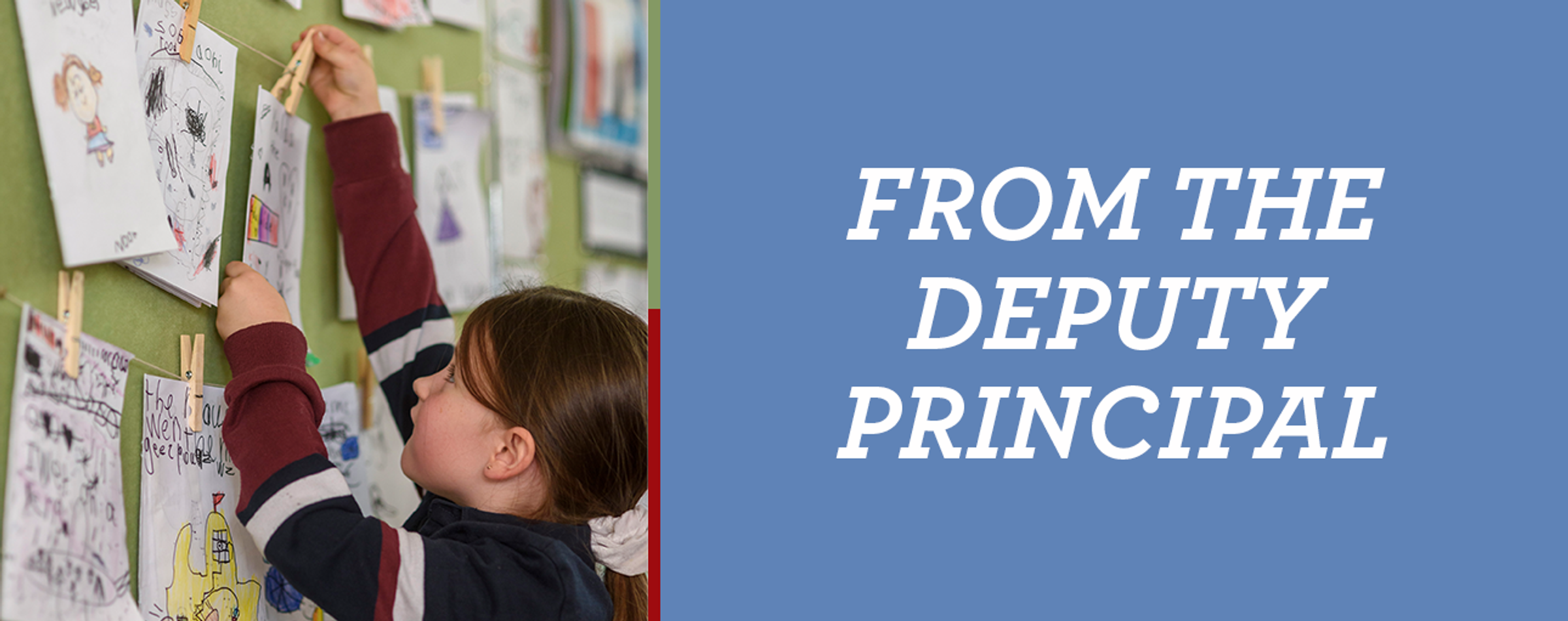From the Deputy Principal
Jason Fay

From the Deputy Principal
Jason Fay
When Progress Reports are made available later this week they can be accessed via the school portal on our website or the school app. The app has been an issue for some families recently and this has been resolved. Information has also been provided via an email regarding logging on and passwords. If you have any questions regarding your child’s progress, please don’t hesitate to speak to your child’s teacher.
Reports going home will create some anxiety for children. How you discuss the report at home is an important step in the learning process, and the child will want the conversation to focus on more than just the raw data or grade.
One of my favourite parts of my role is talking to prospective families on school tours. On our last school tour, a family shared their experiences from some other school tours where data was almost the entire focus of the conversation. This was a real concern to me as it provided an insight into how schools feel like they have to position themselves in the ‘marketplace’. Most school advertising campaigns will tell you how many children made it into university or what the average Year 12 TER score was. I have no doubt that these useful pieces of information to parents but are/should they be the number one priorities of schools?
I have a hard time believing that teachers, leaders and principals took up roles in education to improve data. Each individual is more likely to have become a teacher to inspire children to love learning, not to teach them they must achieve on a quantifiable assessment. In a world where it is easy for children to feel lost and misunderstood, approaches to learning that allow them to explore and express themselves are more important than ever. If we make children feel like a number or a percentage point, what message are we sending them? If they see politicians constantly lamenting under-achievement in the media, how do we think children will see themselves?
A key component of providing a Lutheran Education for children is the holistic development of each child. Many educators and academics have pushed the power of feedback to children in recent years as a way of increasing learning capacity. But feedback is more than about just learning. Every experience, every conversation with a child is feedback about their growth and development. This includes learning and to a degree has a relationship with data. But the child is who we are trying to develop, not a number to be measure against a benchmark or national average.
Jason Fay | Deputy Principal